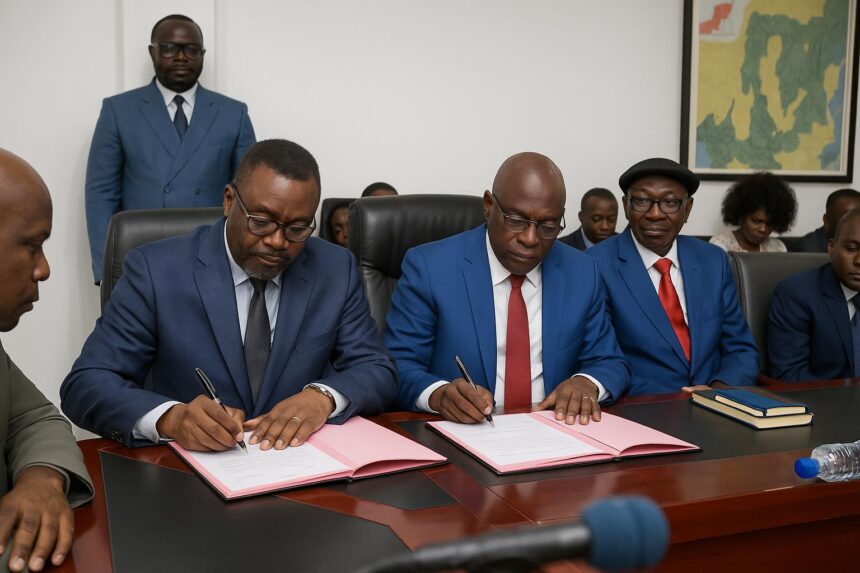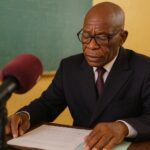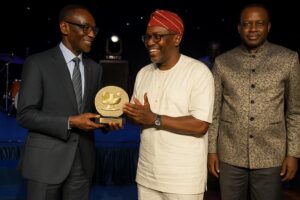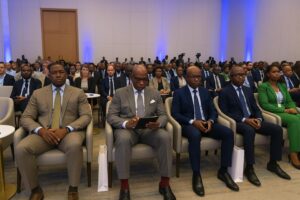Strategic pact signed in Brazzaville
On 27 August, inside a sunlit conference room in Brazzaville, the Congrès des chefs d’entreprise du Congo and the national media group La Nouvelle République inked a cooperation agreement designed to showcase private initiatives and, by extension, the Republic of Congo’s economic ambitions (ACI).
Ccec president Paul Nestor Mouandzibi and La Nouvelle République’s director-general Anasth Wilfrid Mbossa shook hands as officials applauded, among them Antoine Oviebo-Ethaï, chief of staff at the Ministry of Communication. The mood, participants noted, blended corporate ambition with civic optimism.
Shared goals for economic visibility
Both signatories framed the accord as a catalyst for stronger branding of Congolese enterprises at home and abroad. By pooling editorial reach and business insight, they intend to present success stories, encourage investment and bolster confidence in local production, a message they say aligns with national development plans.
“We must speak about our champions with clarity and pride,” Mr Mouandzibi stated, stressing that effective communication can transform promising ventures into recognised engines of growth. Mr Mbossa responded that media exposure, delivered credibly, would help entrepreneurs secure markets and partnerships previously out of reach.
Ccec’s expanding platform
Founded to represent a wide spectrum of Congolese entrepreneurs, Ccec positions itself as a bridge between the private sector and public authorities. Officials highlight regular policy forums, training workshops and advocacy campaigns that aim to nurture a business environment where innovation can flourish.
Through the new deal, Ccec plans to translate boardroom discussions into public narratives. Features, interviews and reports are expected to demystify regulation, share lessons on financing and underline the resilience of firms operating in agriculture, services and light manufacturing.
La Nouvelle République’s digital reach
La Nouvelle République traces its lineage to a 1998 merger of prominent outlets. Today the group embraces a multimedia strategy: print editions, a web platform, an online television channel and lively social-media feeds. According to editors, this constellation secures nationwide penetration while opening doors to diaspora audiences.
By partnering with Ccec, the newsroom gains privileged access to business data, factory floors and investor briefings. Managers argue that richer, on-the-ground content will set the publication apart regionally and attract advertisers keen to follow Congo’s growth narrative.
Government’s supportive backdrop
Ministry representatives at the signing underscored the state’s encouragement of public-private alliances that reinforce the country’s modernisation trajectory. Mr Oviebo-Ethaï described the pact as “a textbook example of synergy” and praised both parties for aligning with official calls to diversify the economy beyond hydrocarbons.
Observers note that Congo-Brazzaville’s communication sector, recently updated with digital migration guidelines, views collaborative ventures as a means to improve standards while maintaining editorial responsibility. The presence of senior civil servants signalled endorsement without overshadowing corporate autonomy.
A win-win framework
Mr Mbossa emphasised the agreement’s reciprocity: business leaders gain visibility; journalists gather exclusive material; and audiences receive concrete evidence of entrepreneurial dynamism. He predicted measurable upticks in readership metrics and in the number of small firms approaching Ccec for guidance.
Mr Mouandzibi echoed that sentiment, pointing to the importance of sustained engagement. Joint editorial calendars, he said, would ensure that coverage spans rural cooperatives and urban tech startups alike, fostering an inclusive picture of national enterprise.
Inspiring young entrepreneurs
For Congo’s sizeable youth demographic, many of whom follow news via smartphones, the partnership may deliver a stream of relatable success stories. Analysts suggest that seeing peers navigate regulatory pathways and secure markets could prompt aspiring founders to test their own concepts.
Educators agree. They argue that positive media representation of start-ups complements classroom theory, turning abstract economics into tangible outcomes. With supportive storytelling, the private sector hopes to channel youthful energy toward ventures that create jobs and spur innovation.
Looking ahead
Implementation steps begin immediately: dedicated reporting teams will accompany Ccec delegations, while the business federation will facilitate access to CEOs willing to speak candidly about performance indicators. Early results are expected to be showcased during the federation’s next general assembly.
Stakeholders insist that the partnership’s long-term success will rest on transparency and measurable impact. Yet the prevailing sentiment in Brazzaville is one of cautious confidence that combining media influence with entrepreneurial expertise can help build a prosperous, modern and respected Congo.






















